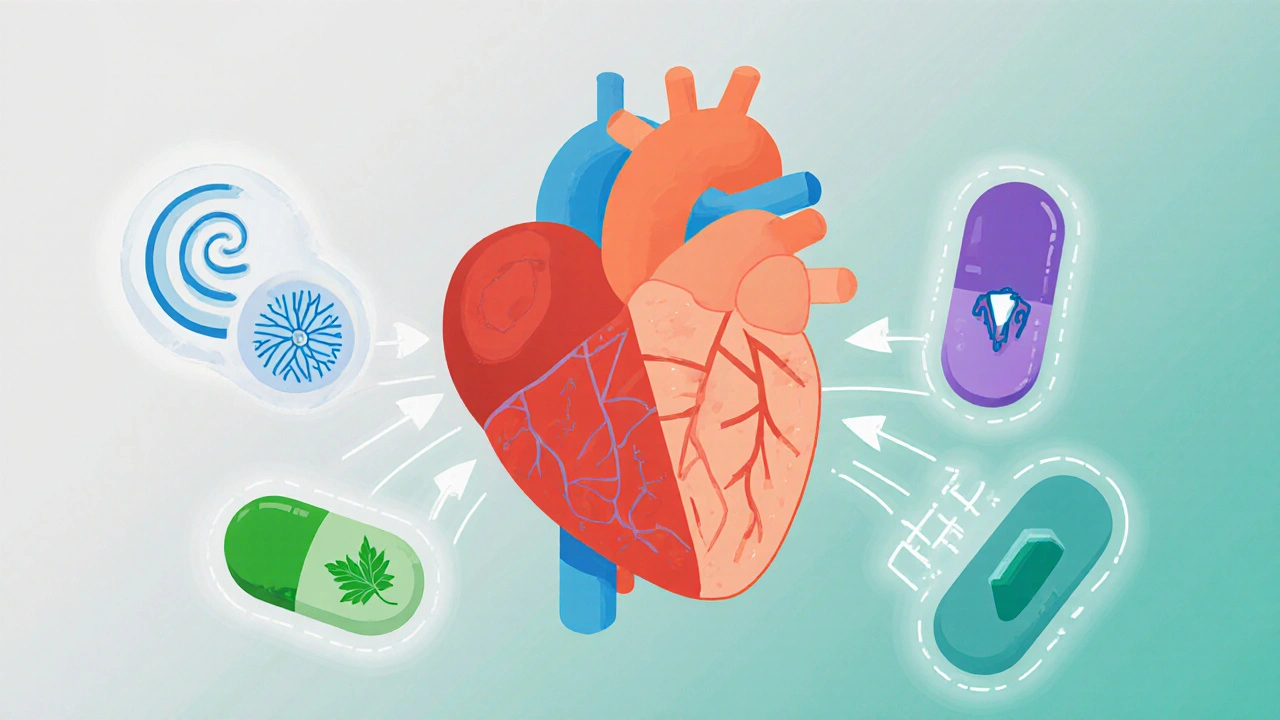Hypertension Medication Options: What Works Best for You
High blood pressure is a silent health threat, but the good news is you don’t have to live with it. A wide range of drugs can lower your numbers, and most people find relief with the right match. Below is a quick guide to the major drug families, how they act, and what to consider when you talk to your doctor.
Common Classes of Blood Pressure Drugs
ACE inhibitors (like lisinopril or enalapril) block a hormone that narrows blood vessels. They’re often first‑line because they work well and help protect the kidneys, especially in diabetics.
ARBs (such as losartan or valsartan) do the same job as ACE inhibitors but cause fewer cough side effects. Many patients switch to an ARB if an ACE inhibitor irritates their throat.
Beta‑blockers (metoprolol, atenolol) slow the heart’s beat and reduce the force of each contraction. They’re a solid choice if you also have heart disease or a history of heart attacks.
Calcium‑channel blockers (amlodipine, diltiazem) relax the muscles in vessel walls, making them wider. They work especially well for older adults and people of African descent.
Diuretics (hydrochlorothiazide, indapamide, furosemide) help kidneys flush excess sodium and water. Thiazide‑type diuretics are cheap and effective for most patients; loop diuretics like Lasix are reserved for heart failure or severe kidney problems.
Sometimes doctors add a renin inhibitor (aliskiren) or combine two classes in a single pill for convenience. Combination therapy can lower blood pressure faster and reduce the number of pills you need to take.
Choosing the Right Drug for Your Lifestyle
Side effects differ by class. ACE inhibitors may cause a dry cough, ARBs usually don’t. Beta‑blockers can make you feel tired and may affect sexual performance. Calcium‑channel blockers sometimes cause swelling in the ankles. Diuretics may raise urination frequency and need you to watch your potassium levels.
Cost matters too. Generic ACE inhibitors, ARBs, and thiazide diuretics are often under $10 a month in Canada, while newer brand‑name drugs can be pricey. If you’re on a tight budget, ask your pharmacist about affordable generic options.
What you eat can influence how a drug works. High‑salt diets blunt the effect of diuretics, while grapefruit juice can raise levels of certain calcium‑channel blockers. Keep your doctor informed about any supplements or over‑the‑counter meds you take.
Most people need more than one drug to reach their target number. Your doctor may start with a low dose of a single medication, then add another if needed. That step‑by‑step approach helps identify which drug gives the best result with the fewest side effects.
Monitoring is key. Check your blood pressure at home, record the numbers, and share them at each appointment. If you notice dizziness, fainting, or swelling, call your health provider right away – those could be signs the dose is too high.
Finally, remember that medication works best when paired with lifestyle changes. Reducing sodium, staying active, losing excess weight, and managing stress all boost the effect of any pill you take.
Choosing a hypertension medication isn’t a one‑size‑fits‑all decision. By understanding the main drug types, their pros and cons, and how they fit your daily routine, you can have a productive conversation with your doctor and find the plan that keeps your heart healthy for the long run.
Diltiazem vs. Alternatives: Which Heart Medication Fits You Best?
by philip onyeaka Oct 1 2025 13 MedicationsA detailed comparison of diltiazem with verapamil, amlodipine, metoprolol, and lisinopril, covering uses, side effects, cost, and how to choose the best heart medication.
READ MORE
